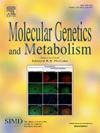区分NBS MCADD病例与携带者和非携带者的有效算法以及MCADD第二新生儿筛查的效用评估
IF 3.5
2区 生物学
Q2 ENDOCRINOLOGY & METABOLISM
引用次数: 0
摘要
假阳性是新生儿筛查的固有部分,它既会增加医疗保健系统的成本,也会增加父母的焦虑。先前的研究主要是在进行新生儿筛查(NBS)的地方检查中链酰基辅酶a脱氢酶缺乏症(MCADD)的推定阳性率,主要是白人,非西班牙裔受试者。德克萨斯州有两个国家统计局,我们地区的大多数人口是西班牙裔。本研究旨在分析生化和DNA数据,以更容易地区分受影响个体与携带者或健康非携带者,并确定第二次NBS对MCADD的益处和挑战。分析NBS干血斑(DBS)的生化和靶向DNA数据,以及诊断生化和DNA检测。采用Kruskal Wallis测试和Dunn后验测试对两组进行比较。所有分析值在MCADD组、携带者组和非携带者组、携带者组和非携带者组之间均有显著差异。Lys329Glu纯合MCADD病例。由于低DBS C8截止和二次NBS,检测到许多假阳性。采用DBS C8、血浆酰基肉碱C6、血浆C8/C10等分析物算法对MCADD患者进行了识别,并将其与携带者和非携带者进行了区分。所有MCADD病例都是在第一个NBS上发现的,这表明第二个NBS对MCADD的效用有限。本文章由计算机程序翻译,如有差异,请以英文原文为准。
Effective algorithm to differentiate NBS MCADD cases from carriers and non-carriers and an assessment of the utility of the second newborn screen for MCADD
False positives are an inherent part of newborn screening that can increase both costs to the healthcare system and parental anxiety. Previous studies primarily examined presumptive positive rates for medium-chain acyl-CoA dehydrogenase deficiency (MCADD) in places conducting one newborn screen (NBS), with predominantly white, non-Hispanic subjects. Texas performs two NBSs and there is a majority Hispanic population in our region. This study aims to analyze biochemical and DNA data to more easily distinguish affected individuals from carriers or healthy non-carriers and identify benefits and challenges of a second NBS for MCADD. Biochemical and targeted DNA data from NBS dried blood spots (DBS) were analyzed, alongside diagnostic biochemical and DNA testing. A Kruskal Wallis Test with Dunn's post-test was performed to compare the groups. Significant differences in all analyte values were observed among MCADD, carrier and non-carrier groups, and between carriers and non-p.Lys329Glu homozygous MCADD cases. Many false positives were detected due to low DBS C8 cutoff and the second NBS. An analyte algorithm including DBS C8, plasma acylcarnitine C6, and plasma C8/C10 was identified and discriminated MCADD cases from carrier and non-carrier cases. All cases with MCADD were identified on the first NBS demonstrating limited utility of a second NBS for MCADD.
求助全文
通过发布文献求助,成功后即可免费获取论文全文。
去求助
来源期刊

Molecular genetics and metabolism
生物-生化与分子生物学
CiteScore
5.90
自引率
7.90%
发文量
621
审稿时长
34 days
期刊介绍:
Molecular Genetics and Metabolism contributes to the understanding of the metabolic and molecular basis of disease. This peer reviewed journal publishes articles describing investigations that use the tools of biochemical genetics and molecular genetics for studies of normal and disease states in humans and animal models.
 求助内容:
求助内容: 应助结果提醒方式:
应助结果提醒方式:


